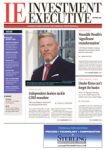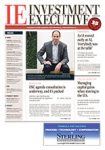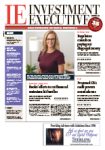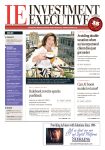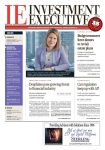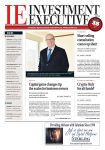MFDA proposes trading flexibility
Industry asks the regulator for greater clarity on a proposal that would allow mutual fund reps to perform limited discretionary portfolio management
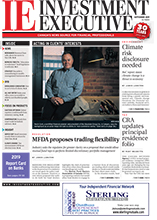
Industry asks the regulator for greater clarity on a proposal that would allow mutual fund reps to perform limited discretionary portfolio management
BoC report states climate change is a threat to the economy
With the price of real estate skyrocketing, Ottawa is concerned that Canadians are accessing the PRE inappropriately
Rowena Chan brings 30 years of experience and a degree in sociology to her role as president of Sun Life Financial Distributors
The Dept. of Finance releases draft legislation concerning the "allocation to redeemers" methodology and extends the capital gains-related timeline for ETFs
Companies in B.C collectively raised $19.1 billion in 2018, which is 27% more than in the previous year, according to a BCSC report
Manulife Financial is looking to streamline, innovate and expand
Negative rates have already hit Germany. Could below-zero rates come to Canada?
A look at where institutions' support shines and where it slips
The banks' top producers significantly outperformed their colleagues
For more than five years, these categories have had the highest satisfaction gaps - and those gaps are growing
As banks invest in software and training, advisors wait for the payoff
The Report Card's product-focused categories remain important to advisors
Report Card on Bank respondents were vocal about the value of these products
Respondents' satisfaction linked to bank's compensation structure
As clients demand more, these planners may need additional support
Clients in their 40s and early 50s would rather enjoy life today than plan for tomorrow. Understanding their attitudes and needs can help you point…
To work more efficiently, focus on courting prospective clients who meet your criteria
Kevin Cork was pursuing a career as an actor when he was "bitten by the financial planning bug"
A network-attached storage device on your own premises can keep your data safe. But you must configure it properly
As the population ages and the proportion of Canadians with a disability increases, an accessible practice is simply good business
Easing of monetary policies could stimulate economic growth, alleviating downward pressure from geopolitics
The billable hour model is not appropriate for advisors who integrate financial planning and investment management
Product watch
Product watch
Smaller and "mass market" investors receive little in return for the money they pay for financial advice
Whoever wins the next federal election will have to deal with environmental issues

